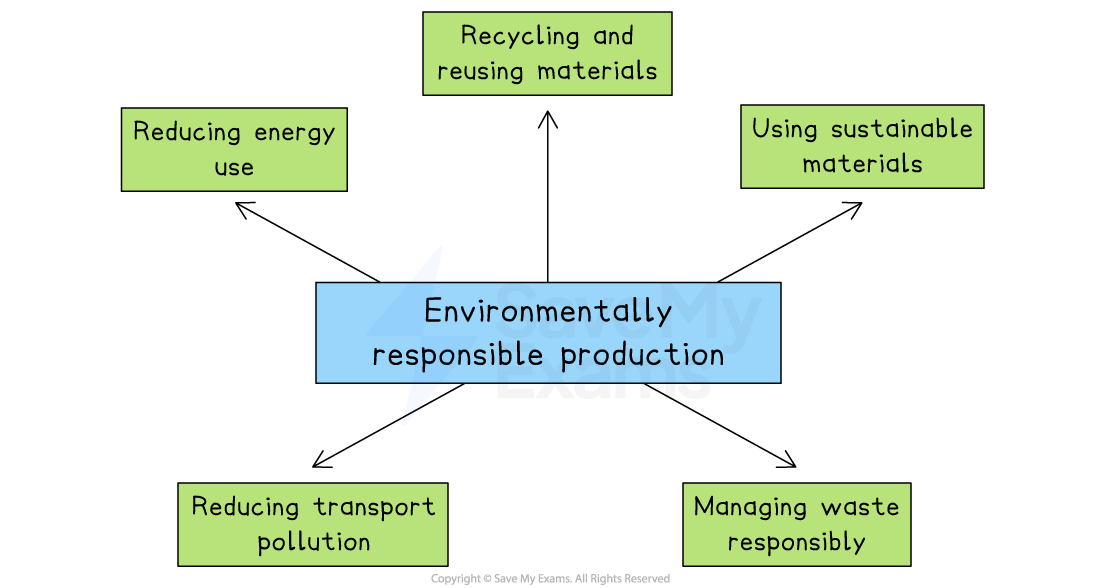Environmentally Friendly Production (SQA National 5 Business Management): Revision Note
Exam code: X810 75
How to produce in an environmentally friendly way
Environmental responsibility means a business aims to reduce the harm it causes to the planet during production
This includes using resources wisely, cutting waste and lowering pollution to protect the environment for future generations
Businesses that act responsibly often gain a better reputation and may save money through efficiency
How to produce responsibly

1. Reduce energy use
Businesses can cut their energy use by switching to renewable sources, such as solar or wind power
They can also use energy-efficient machines and turn off lights or equipment when not in use
Lower energy use helps reduce costs and the business’s carbon footprint
E.g., Mackie’s of Scotland powers its Aberdeenshire ice cream factory with wind turbines and solar panels
2. Recycle and reuse materials
Production waste such as paper, metal, or plastic can be recycled instead of being thrown away
Some materials can be reused or repurposed within the business to reduce waste
This saves raw materials, cuts disposal costs and shows customers the business cares about sustainability
E.g., car manufacturers often recycle scrap metal and reuse leftover materials in new production
3. Use sustainable materials
Businesses can choose renewable or responsibly sourced materials such as recycled paper, bamboo or wood from sustainable forests
This reduces the environmental impact of production and helps protect natural resources
E.g., paper companies that use FSC-certified wood show that their materials come from forests managed responsibly
4. Reduce transport pollution
Firms can cut pollution by buying from local suppliers and using fuel-efficient or electric vehicles
This shortens transport routes and reduces harmful emissions
Efficient delivery planning also saves time and money.
E.g., food producers often use local farms to source ingredients, reducing transport distances and supporting the local economy
5. Manage waste responsibly
Businesses can reduce the amount of waste going to landfill by monitoring and controlling waste at every stage of production
They can separate recyclable waste, compost organic materials, and ensure hazardous waste is handled safely
Good waste management lowers environmental damage and disposal costs
E.g., supermarkets such as The Cooperative and Aldi work to cut food waste by donating surplus food to charities or selling it at a discount
Case Study

Highland Spring is a bottled water company based in Perthshire that has made major efforts to reduce its environmental impact and promote sustainable production
Environmentally friendly practices
Recycled packaging: All bottles are now made from 100% recycled plastic
Efficient production: The company uses modern machinery to reduce water and energy waste
Sustainable sourcing: Water is drawn from protected natural springs managed carefully to avoid overuse
Transport improvements: It has switched many delivery lorries to low-emission vehicles
Recycling promotion: Labels on bottles encourage customers to recycle after use
Impact
Highland Spring’s green initiatives have strengthened its brand reputation as an environmentally responsible company
These actions help reduce pollution, attract eco-conscious customers and support Scotland’s environmental goals
Examiner Tips and Tricks
Students often describe what firms say rather than what they do. Go beyond slogans — explain specific actions like reducing emissions, reusing materials or sourcing locally

Unlock more, it's free!
Was this revision note helpful?
